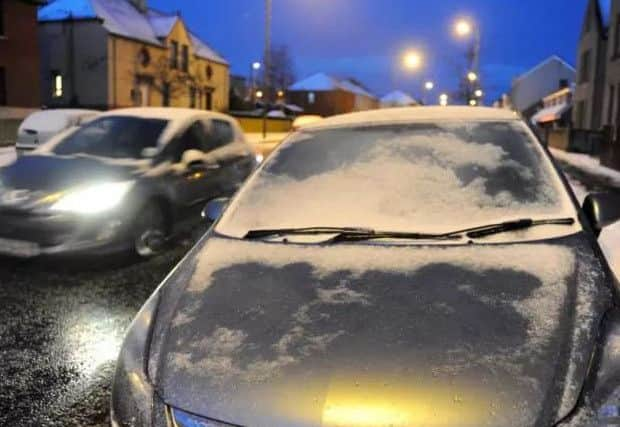Number of Lanarkshire patients with broken bones soars after cold snap
There were so many trauma cases due to falls before Christmas that staff did the equivalent of a week-and-a half’s work in just three days.
Stephen Peebles, service manager for trauma and orthopaedics at NHS Lanarkshire, said: “The number of trauma cases is typically around 50 a week at this time of year.
Advertisement
Hide AdAdvertisement
Hide Ad

“But we carried out an unprecedented 124 operations from December 15 to 21.
“We successfully managed this extremely large number of procedures because our fantastic staff really pulled together across University Hospital Hairmyres, University Hospital Monklands and University Hospital Wishaw.
“A total of 70 of the trauma cases were done in just three days - from the Monday to the Wednesday, at our inpatient sites for orthopaedics at Wishaw and Hairmyres.
“Additional capacity, over and above our standard weekend trauma operating theatres, was also in place at Wishaw on the Sunday.”


Orthopaedic consultant David Howie, a trauma lead at University Hospital Wishaw, was among the clinical staff who dealt with patients.
He said: “The sheer volume of trauma generated by the recent icy conditions was remarkable.
“It caused a mixture of relatively standard hip, ankle and wrist fractures and a significant number of more complex fractures which take considerably longer time in theatre to fix and often require a surgeon with a specific skill-set such as shoulder, hand and hip surgery.”
Mr Howie said the volume of patients had a “significant impact” on everyone involved looking after patients.
Advertisement
Hide AdAdvertisement
Hide AdThey included emergency department staff, radiographers, radiologists, on-call junior doctors and trauma liaison nurses.
He added: “Many staff worked later and came in earlier to manage these extra trauma cases.”
